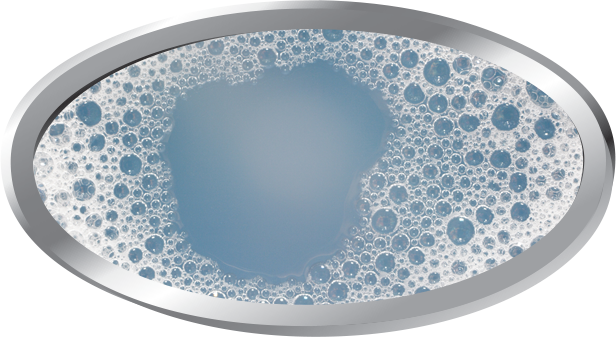The Science Behind Defoamers and Their Role in Foam Control
The Science Behind Defoamers and Their Role in Foam Control
Blog Article
The Duty of Defoamers in Enhancing Product Quality and Efficiency
Defoamers serve as vital additives that minimize this concern, making sure smoother production workflows while improving the useful and aesthetic attributes of the last items. The selection of the ideal defoamer can be vital to accomplishing optimum outcomes, raising essential concerns regarding solution compatibility and efficiency metrics that merit further expedition.
Comprehending Defoamers
Comprehending the function of defoamers is necessary for preserving item top quality throughout different markets. Defoamers are chemical ingredients developed to protect against the formation and decrease of foam in liquid systems, which can adversely influence procedures such as blending, loading, and surface area stress. Lathering can cause ineffectiveness, item problems, and endangered aesthetic allure, making defoamers a crucial element in manufacturing procedures.
In commercial applications, defoamers help to boost item uniformity and security. The reliable usage of defoamers not only makes certain smoother manufacturing processes however likewise adds to premium product efficiency.
Additionally, the option and formula of a defoamer must align with particular application needs, such as compatibility with various other components, efficiency under differing temperature level and pH problems, and prospective regulative restraints. Ultimately, recognizing defoamers' functions and their significance in numerous formulations is critical for optimizing production and making sure the greatest quality final product.
Kinds of Defoamers
Defoamers can be classified right into a number of kinds based on their composition and device of action. The primary types consist of silicone-based, non-silicone organic, and not natural defoamers.
Silicone-based defoamers are among the most effective, largely due to their capability to spread quickly on the fluid surface area and interfere with foam formation. Their unique chemical framework permits for remarkable security, making them ideal for high-temperature applications and atmospheres with differing pH degrees.
Non-silicone organic defoamers, frequently made up of natural oils or fatty acids, are valued for their biodegradability and lower toxicity. These are generally used in food and beverage applications where safety and ecological influence are vital.
Inorganic defoamers, which include materials like talc or calcium carbonate, act by enhancing the thickness of the fluid, therefore decreasing foam stability. They are commonly used in industrial processes where compatibility with various other materials is not an issue.
Each kind of defoamer has distinctive advantages and constraints, allowing for customized services depending upon the particular foaming problems experienced in various applications. Comprehending these distinctions is critical for maximizing performance and accomplishing preferred item quality.
Applications Across Industries
Many sectors utilize defoamers to boost item top quality and functional effectiveness. In the food and drink market, defoamers are vital in procedures such as developing and dairy manufacturing to stop foam formation, which can lead to inadequacies and product incongruity. By controlling foam, manufacturers can guarantee much better return and a more uniform product.
In the pharmaceutical sector, defoamers play a crucial role in the solution of liquid medications, where extreme foam can impede mixing and exact dosing. Their use helps keep the integrity of the formulations and assists in smoother production processes.
The paint and finishes sector also depends on defoamers to enhance the efficiency of items throughout application. By reducing foam, these ingredients guarantee a smoother surface and enhance the aesthetic high qualities of the end product.

Advantages of Making Use Of Defoamers
While the Click Here application of defoamers differs throughout sectors, their benefits regularly boost product top quality and process performance. One substantial advantage is the decrease of foam formation during producing procedures, which can otherwise cause manufacturing delays and variances in product top quality. By reducing foam, defoamers enable a smoother flow of materials, helping with a lot more efficient operations and decreasing the possibility of devices malfunctions.
Furthermore, making use find more of defoamers can improve the look and appearance of end products. In industries such as coverings, paints, and food handling, excessive foam can compromise the visual aesthetic appeals and general high quality, while the ideal defoamer application guarantees a consistent finish and desirable qualities. In addition, defoamers can add to set you back savings by reducing waste during manufacturing and optimizing the usage of raw products (defoamers).

Selecting the Right Defoamer
Choosing the best defoamer is crucial for maximizing production processes and making sure item top quality. The choice of defoamer influences not only the performance of foam control yet also the general performance attributes of the end product. Elements to consider consist of the sort of application, the chemistry of the formula, and the ecological conditions under which the product will certainly be utilized.
Various industries may need details defoamer kinds, such as silicone-based, organic, or polymeric defoamers. Recognizing the compatibility of the defoamer with the primary components is necessary to prevent unfavorable reactions that might endanger item stability. Furthermore, the defoamer's efficiency in different click temperature levels and pH degrees should be evaluated to make certain regular performance.
Checking the defoamer in small-scale applications can offer important understandings right into its efficiency and viability. Consideration of regulatory compliance, specifically in food, pharmaceuticals, and cosmetics, is vital in selecting a defoamer. Ultimately, a detailed analysis of these variables will certainly lead to the choice of a defoamer that not only regulates foam properly but additionally enhances the top quality and performance of the end product.
Verdict

To conclude, defoamers are crucial additives that considerably boost product top quality and efficiency throughout different markets. By effectively lowering foam development, these representatives not only improve functional efficiency but additionally add to the aesthetic and useful integrity of products. The strategic option and application of defoamers result in set you back financial savings, enhanced resource usage, and enhanced consumer complete satisfaction. Overall, the importance of defoamers in commercial procedures can not be overemphasized, as they play a vital function in accomplishing constant and top quality outcomes.
Foaming can lead to inefficiencies, product issues, and compromised aesthetic appeal, making defoamers a vital part in manufacturing operations.

Report this page